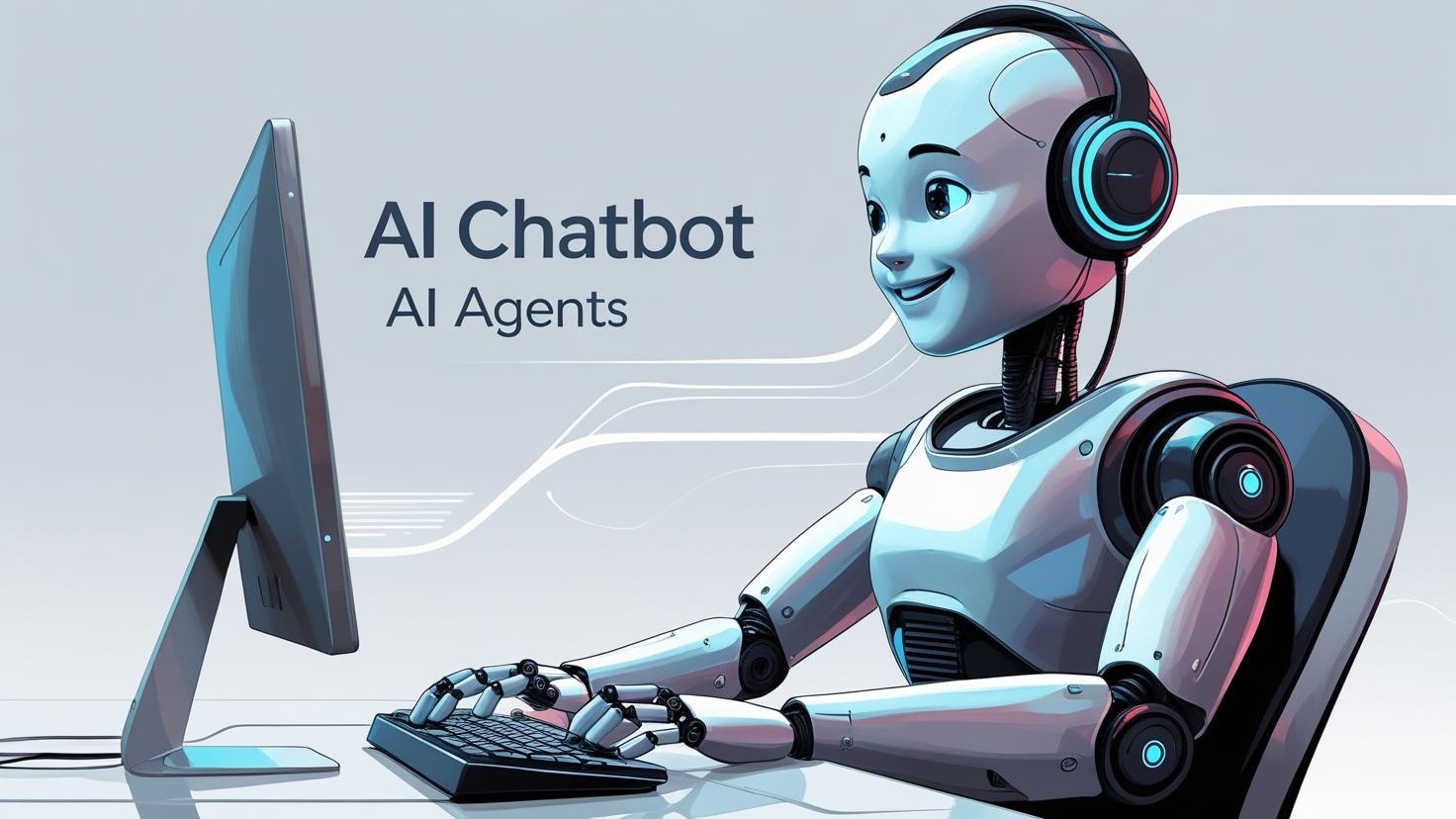Did you know that integrating chatbots into customer service can reduce operating costs by up to 30%? In an era where efficiency meets technology, chatbots emerge as revolutionary tools for enhancing interactions. Picture a world where customer queries are resolved swiftly, satisfaction levels are soaring, and businesses flourish. Read on to discover how chatbots can transform your customer service experience and make magic a reality!
The Impact of Chatbots on Customer Service
In today's fast-paced digital environment, chatbots are reshaping how companies engage with their customers. By automating responses and handling large volumes of queries, they ensure no customer is left unattended. This automated form of communication is crucial for businesses aiming to stay competitive in a world where user demands are high.
Practical examples show that chatbots have significantly reduced the workload of human agents, allowing them to focus on more complex queries that require a personal touch. For instance, when a chatbot handles FAQ sections, human agents can dedicate their time to personalized interactions, leading to enhanced customer satisfaction and quicker problem resolution.
Chatbots Revolutionizing Communication
Chatbots revolutionize communication by providing instant responses, streamlining the customer interaction process. Businesses like banks and e-commerce platforms use chatbots to handle user input and offer tailored solutions effectively. This transformation not only boosts efficiency but also creates a seamless experiential journey for customers from start to finish.

Enhancing Customer Experience with AI Chatbots
AI chatbots enhance the customer experience by offering personalized interactions and 24/7 availability. By leveraging machine learning and natural language processing , AI chatbots understand and anticipate customer needs, providing solutions that are as effective as human intervention.
Understanding AI Chatbots
Understanding AI chatbots is key to unlocking their potential in any business. They are software applications that utilize artificial intelligence to conduct human-like conversations. By creating a seamless flow of conversational responses, AI chatbots bridge the gap between businesses and users effectively.
What are AI Chatbots?
At their core, AI chatbots combine natural language processing with interactive elements to offer a form of intelligent customer engagement. They are designed to handle repetitive tasks, answer questions, and even learn from customer interactions to improve over time. With AI chatbots, businesses can ensure that all customer engagements are efficient, accurate, and beneficial.

Generative AI and Its Role in AI Chatbots
Generative AI plays a significant role in the evolution of AI chatbots, enabling them to create dynamic and contextually relevant interactions. By understanding user input, generative AI chatbots can formulate responses that mimic human conversation, thus enhancing the overall customer interaction and ensuring that users receive personalized attention.
Conversational AI for Better Customer Interactions
Conversational AI is all about improving customer interactions by making them more human-like and intuitive. Through advanced machine learning and predictive analytics, conversational AI chatbots can engage in meaningful dialogues, making the customer feel heard and valued. The integration of conversational AI in customer service helps businesses tailor experiences to individual needs, thereby increasing satisfaction.
Types of Chatbots
There are various types of chatbots, each tailored to specific purposes and interactions. Understanding these differences can help businesses choose the right technology for their needs. Here’s a look at the four main types of chatbots that are commonly used today.

What are the 4 Types of Chatbots?
The four main types of chatbots include rule-based bots, AI chatbots, virtual assistants, and hybrid bots. Rule-based bots operate on predefined responses and cannot learn or adapt. In contrast, AI chatbots like Siri and Alexa use artificial intelligence to learn and evolve, offering more sophisticated and personalized interactions. Virtual assistants offer personal assistance beyond set tasks, while hybrid bots combine elements of both rule-based and AI chatbots to enhance versatility and effectiveness.
Comparing Chatbots: Alexa vs. Siri
Alexa and Siri serve as prime examples of AI chatbots that consumers interact with regularly. While both offer hands-free convenience, the key difference lies in their ecosystem integration—Alexa connects with Amazon services and smart home devices, whereas Siri integrates seamlessly with Apple's product range. This comparison underscores the capabilities and constraints of deploying AI chatbots within different technological environments.
The Best Chatbots for Business
Choosing the best chatbot for business involves evaluating features that align with the company’s objectives. By considering current trends and innovations in chatbot technology, businesses can enhance their customer service strategies significantly.
Features that Define the Best Chatbots
The best chatbots are defined by their ability to understand user intent through natural language processing, their seamless integration with existing systems, and their ability to provide insightful analytics. Such features allow for continuous improvement of service delivery, making these chatbots invaluable assets to businesses seeking to hype up customer engagements.

Emerging Trends: AI Agents and AI Chatbots
Emerging trends in the field focus on the development of AI agents and their synergy with chatbots. These trends highlight the shift toward omnichannel engagement, where AI-driven tools operate cohesively to provide a unified and satisfying customer experience. AI agents serve as advanced learning models, streamlining operations and personalizing customer service interactions.
Implementing AI Chatbots in Customer Support
Implementing AI chatbots in customer support offers businesses an opportunity to provide unmatched service quality. By bridging the gap between user needs and business capabilities, AI chatbots ensure customer satisfaction and operational efficiency.
Bridging the Gap with AI Chatbots
AI chatbots bridge the gap between user expectations and service delivery. By harnessing tools such as chatbot software , companies can automate and streamline user interactions, allowing human agents more time to focus on complex queries that require human delicacy.
Improving Customer Support with AI Agents
AI agents complement chatbots by offering a deeper understanding of customer interactions and preferences. Their adaptive learning capabilities allow them to provide more tailored support, ensuring that every customer feels prioritized and valued. Businesses embracing this trend are likely to stay ahead in a competitive market.

Building a Comprehensive Knowledge Base
Building a comprehensive knowledge base is pivotal for AI chatbots to succeed. It equips them with a repository of information that can be tapped into during customer interactions, ensuring accurate and timely answers to queries. This, in turn, enhances the efficiency of the entire customer service operation.
Advantages of AI Chatbots in Customer Service
The advantages of AI chatbots in customer service are manifold, offering businesses the opportunity to streamline operations and personalize user experiences. Below are some of the key advantages.
Streamlining Customer Interactions
AI chatbots streamline customer interactions by handling inquiries that would typically require manual input. By programming them with a robust base of conversational responses, businesses can ensure that interactions are smooth and uninterrupted, improving overall user satisfaction and efficiency.

AI Chatbots for Personalized Customer Experiences
AI chatbots enable personalized customer experiences by learning from past interactions to anticipate future behaviors. This proactive approach allows businesses to tailor their services, offering personalized solutions that resonate with each individual's unique needs and preferences.
How Chatbots Enhance Customer Engagement
Chatbots enhance customer engagement by offering continuous and uninterrupted service that boosts confidence and reliability in business interactions. Their ability to provide instant feedback and solutions means customers are more likely to remain loyal, satisfied, and engaged.
"Chatbots are changing the way businesses communicate with their customers, offering more efficient and personalized interactions."
Challenges in Using AI Chatbots
Despite their advantages, deploying AI chatbots comes with challenges that need to be addressed. Understanding these challenges can help businesses strategize efficiently to maximize benefits.
Overcoming Challenges in Chatbot Deployment
Common challenges in chatbot deployment include overcoming customer resistance to automated service, ensuring consistent human-like interactions, and integrating chatbots within existing systems. Addressing these concerns involves robust planning, testing for usability, and training to ensure efficiency and optimization.

Addressing Common Concerns with AI Chatbots
Addressing concerns such as data privacy and security, responses in complex scenarios, and the need for human agents during nuanced situations is crucial. Solutions involve implementing strong security protocols and continuously improving AI models to cater to more intricate requirements.
Future of AI Chat: Staying Ahead of the Curve
Staying ahead involves constantly updating and developing chatbot solutions to keep pace with evolving technology and consumer expectations. Innovating with new AI tools and algorithms allows businesses to enhance service delivery and maintain a competitive edge.
Sector-Specific Applications of AI Chatbots
AI chatbots have varied applications across different sectors, offering unique benefits that can enhance operations and service delivery significantly within these industries.
AI Chatbots in Retail
In retail, AI chatbots are employed to assist buyers in finding products, answering product-related queries, and providing recommendations based on previous behavior. This enhances the shopping experience by making it more interactive and personalized, leading to increased sales and customer retention.
AI Chatbots in Healthcare
Healthcare is another sector where AI chatbots prove invaluable. They assist in scheduling appointments, providing medication reminders, and even offering basic health advice, thus facilitating the work of human agents in handling crucial tasks.

AI Chatbots in Financial Services
AI chatbots in financial services provide users with information on banking products, real-time updates on transactions, and immediate customer support. They streamline financial interactions, offering users a reliable method of information retrieval and transaction handling.
Conclusion: Transforming Customer Service with Chatbots
The journey of integrating chatbots into customer service is both transformative and rewarding. By embracing this technology, businesses can enhance service delivery, streamline operations, and offer personalized experiences to their customers. Join the revolution today and see how chatbots can bring magic to your customer interactions!
The Future of Customer Service and AI
Future advancements in AI promise to revolutionize customer service even further, leveraging predictive analytics and personalized solutions to exceed user expectations.
Steps to Implement AI Chatbots in Your Business
1. Identify your business needs and objectives. 2. Choose the right AI chatbot solution aligning with your goals. 3. Train your chatbot with a well-structured knowledge base . 4. Implement and continuously optimize based on user feedback.
Final Thoughts on AI Chatbot Integration
AI chatbots have the potential to elevate customer interactions to new levels of efficiency and personalization. Embrace this technology to transform your business landscape today!
People Also Ask
What are the 4 types of chatbots?
There are four primary types of chatbots: rule-based bots that follow pre-set instructions, AI chatbots that learn and adapt, virtual assistants that provide personal assistance, and hybrid bots that combine the other types' elements for versatility.
Is Alexa a chatbot?
Yes, Alexa is a form of AI chatbot designed to perform tasks, provide information, and offer interactive communication through voice commands, primarily within the Amazon ecosystem.
Is Siri a chatbot or AI?
Siri is an AI-driven chatbot that acts as a virtual assistant, leveraging natural language processing to facilitate communication and control over various Apple device functions.
Which chatbot is best?
The best chatbot depends on your needs—it involves understanding the industry requirements and the specific functionalities desired, such as ease of integration or scalability.
FAQs About AI Chatbots
How do AI chatbots handle complex queries?
AI chatbots handle complex queries through advanced natural language processing and machine learning algorithms, enabling them to understand context and provide detailed responses.
What industries benefit the most from AI chatbots?
Industries like retail, healthcare, and financial services benefit significantly from AI chatbots due to their ability to enhance customer interactions, streamline operations, and provide personalized service.
Can AI chatbots operate independently of human intervention?
While AI chatbots can manage many automated tasks independently, complex scenarios may still require human support to ensure nuanced understanding and empathy in some customer interactions.
Get Started With AI Chatbots Today!
Embrace the power of AI chatbots—transform how your business interacts with customers today. This innovative technology promises to streamline operations, personalize customer engagements, and deliver measurable results. Don't wait; start your AI chatbot journey now!
 Add Row
Add Row  Add
Add 








Write A Comment